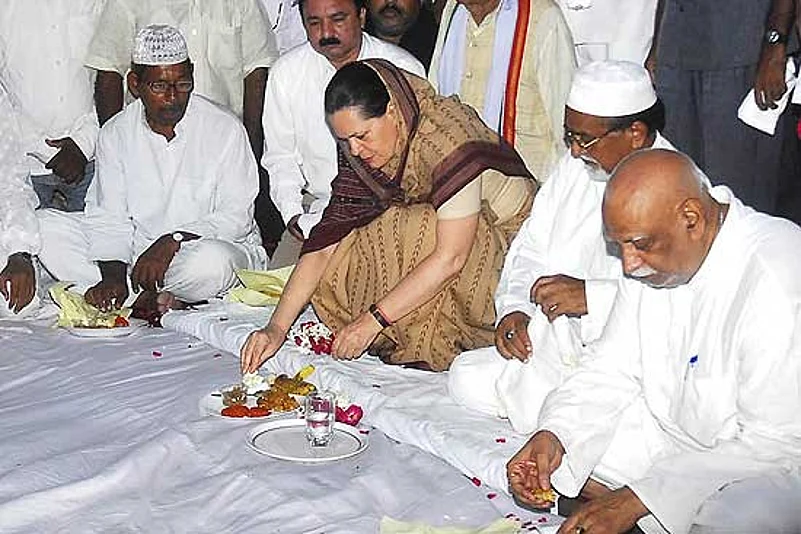Senior Congress leader A.K. Antony’s thinking aloud on the party’s wrong positioning on secularism might suggest the party is coming out of the stupor the Modi blitzkrieg blew them off into, but it would perhaps be too optimistic to think it would lead to any transformational repositioning. Firstly, because the party still refuses to accept that much of Hindu communalism is a reaction to the Muslim communalism it has promoted in the name of secularism. The RSS was the mason of the Hindu communal edifice but the Congress provided the sand and cement for it. The Congress continues to blame its rout entirely on Hindu communalism, without accepting any share of the blame. Was the vote entirely of Modi’s making? It was basically a vote for better governance but with a communal twist. A large body of Hindus saw the desperate wooing of religious minorities by Congress as a pathetic trick by a corrupt and inefficient government to return to power by bypassing them and ‘buying’ minority votes.
Post-Partition, the Muslim leadership was in the hands of feudal classes and the mullahs with whom Congress struck alliances. Will the Congress come out of its antiquated ‘secular’ alliance? In the more than six decades since, economic changes have pulled down the hierarchical structure of Muslims and thrown their cultural values into a flux. The Congress has already been isolated by the political embodiments of these changes among Hindus: the backward classes and Dalit parties.
The Muslims are looking for a modernist leadership but the Congress stubbornly refuses to promote any among them. The British were more courageous: they were not afraid of antagonising the Muslim clergy. They staunchly backed Syed Ahmed Khan when he decided to promote western education in total defiance of the guardians of orthodox Islam. Can the Congress shed its fear of the mullahs? It crawled before them in the Shah Bano case. Can they make a beginning by espousing a common civil law? It is not a Hindu communal demand; it will abolish Hindu family laws too, as it will of Christians, Jews and Parsis. Can the Congress do it to give women of all communities a new deal in marriage, divorce and inheritance? Will they find and back a Syed Ahmed for that cause? Highly unlikely. The fear of mullahs runs so deep in the party it even avoids resolving issues on which the mullahs are flexible like the singing of Vande Mataram. The mullahs are ready to allow it if only language scholars could convince them it calls for bowing to the revered earth and not to a mother goddess. The Congress never took the initiative for an inter-faith conference of scholars to resolve the issue.
Communalism did not begin with Modi in Gujarat. Under the regimes of Congress CMs Madhavsinh Solanki and Hitendra Desai too riots took place claiming many Muslim lives. But the Congress propaganda made communalism look like only a problem of Modi’s Gujarat. The Congress zealously worked to curb Modi for its political ends but it did not work to curb communalism. It did nothing to drastically reform the administration for effective intelligence, dispute resolution, communication to counter rumours, police intervention and logistics and for greater autonomy of action and accountability of officers to nip communal tensions in the bud, even if the chief minister wanted otherwise. It was in power in several states; it could have given us a model.
If secularism—such a beautiful concept of co-relationship of people of diverse faiths—appears like an empty, dirty word in India today, the blame goes entirely to the Congress. So much so that Hindu assimilationists are able to contend that the election mandate vindicated their claim as champions of true secularism. Ironically, their invitation to religious minorities for inclusion does not mean the end of their exclusion but the end of their exclusiveness, of their special rights and privileges. Their message is: “Shed your particularities and different ways of life. Come and be like us Hindus.” Is the Congress in a position to save the religious minorities from the cultural ‘jeziya’ demanded by Hindu assimilationists?
(The author is a senior journalist.)


























